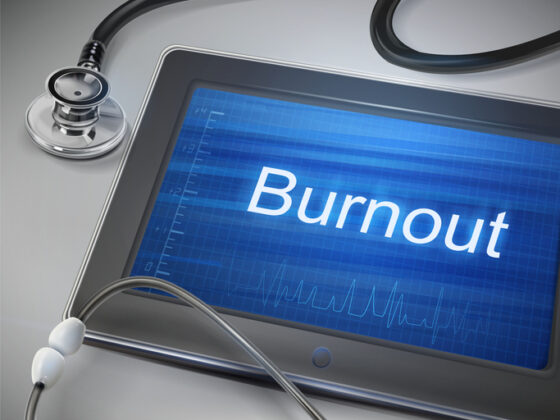During Mental Health Awareness Month, Surgeon General’s Advisory Highlights the Impacts of the COVID-19 Pandemic on Health Workers, Who Already Faced Crisis Levels of Burnout Prior to the Pandemic
There is a Projected Shortage of More than 3 Million Essential Low-Wage Health Workers in the Next Five Years and a Projected Shortage of Nearly 140,000 Physicians by 2033
Today, United States Surgeon General Dr. Vivek Murthy issued a new Surgeon General’s Advisory highlighting the urgent need to address the health worker burnout crisis across the country. Health workers, including physicians, nurses, community and public health workers, nurse aides, among others, have long faced systemic challenges in the health care system even before the COVID-19 pandemic, leading to crisis levels of burnout. The pandemic further exacerbated burnout for health workers, with many risking and sacrificing their own lives in the service of others while responding to a public health crisis. Promoting the mental health and well-being of our nation’s frontline health workers is a priority for the Biden-Harris Administration and a core objective of President Biden’s national mental health strategy, within his Unity Agenda.
The Surgeon General’s Advisory addressing health worker burnout lays out recommendations that the whole-of-society can take to address the factors underpinning burnout, improve health worker well-being, and strengthen the nation’s public health infrastructure.
“At the height of the COVID-19 pandemic, and time and time again since, we’ve turned to our health workers to keep us safe, to comfort us, and to help us heal,” said Secretary of Health and Human Services Xavier Becerra. “We owe all health workers – from doctors to hospital custodial staff – an enormous debt. And as we can clearly see and hear throughout this Surgeon General’s Advisory, they’re telling us what our gratitude needs to look like: real support and systemic change that allows them to continue serving to the best of their abilities. I’m grateful to Surgeon General Murthy for amplifying their voices today. As the Secretary of Health and Human Services, I am working across the department and the U.S. government at-large to use available authorities and resources to provide direct help to alleviate this crisis.”
“The nation’s health depends on the well-being of our health workforce. Confronting the long-standing drivers of burnout among our health workers must be a top national priority,” said Surgeon General Vivek Murthy. “COVID-19 has been a uniquely traumatic experience for the health workforce and for their families, pushing them past their breaking point. Now, we owe them a debt of gratitude and action. And if we fail to act, we will place our nation’s health at risk. This Surgeon General’s Advisory outlines how we can all help heal those who have sacrificed so much to help us heal.”
Even before the COVID-19 pandemic, health workers were experiencing alarming levels of burnout – broadly defined as a state of emotional exhaustion, depersonalization, and low sense of personal accomplishment at work. Burnout can also be associated with mental health challenges such as anxiety and depression. In 2019, the National Academies of Medicine (NAM) reported that burnout had reached “crisis” levels, with up to 54% of nurses and physicians, and up to 60% of medical students and residents, suffering from burnout. The pandemic has since affected the mental health of health workers nationwide, with more than 50% of public health workers reporting symptoms of at least one mental health condition, such as anxiety, depression, and increased levels of post-traumatic stress disorder (PTSD).
Health worker burnout not only harms individual workers, but also threatens the nation’s public health infrastructure. Already, Americans are feeling the impact of staffing shortages across the health system in hospitals, primary care clinics, and public health departments. With over half a million registered nurses anticipated to retire by the end of 2022, the U.S. Bureau of Labor Statistics projects the need for 1.1 million new registered nurses across the U.S. Further, within the next five years, the country faces a projected national shortage of more than 3 million low-wage health workers. The Association of American Medical Colleges (AAMC) projects that physician demand will continue to grow faster than supply, leading to a shortage of up to 139,000 physicians by 2033, with the most alarming gaps occurring in primary care. Health worker burnout affects the public’s ability to get routine preventive and emergency care, and our country’s ability to respond to public health emergencies.
The Surgeon General’s Advisory Addressing Health Worker Burnout lays out recommendations for health care organizations, health insurers, health technology companies, policymakers, academic institutions, researchers, and communities to address health worker burnout and ensure their well-being – so that health workers can thrive and better answer their call as healers.
To learn more and read the topline recommendations to address burnout read the entire advisory here.




